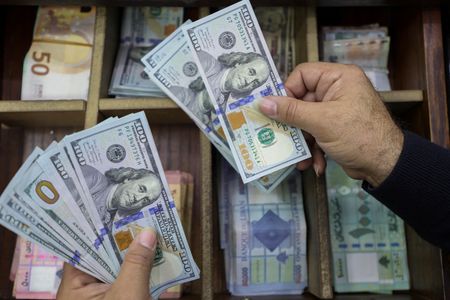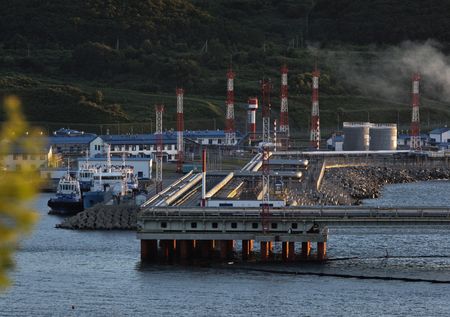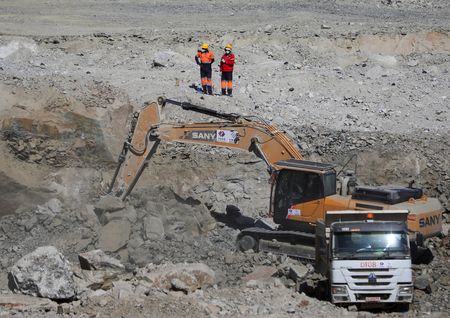By Gabrielle Ng and Colleen Howe
SINGAPORE (Reuters) -Oil prices were little changed in Asian trading on Tuesday as investors took stock of President Donald Trump’s plans to apply new tariffs later than expected while boosting oil and gas production in the U.S.
Brent crude futures edged lower by 1 cent, or 0.01%, to $80.14 per barrel by 0405 GMT.
The most actively traded West Texas Intermediate crude March contract dipped 60 cents, or 0.78%, to $76.79 a barrel. There was no settlement in the U.S. market on Monday due to a public holiday. The February contract expires on Tuesday.
“There are a lot of moving parts for markets to digest this morning, driven largely by headlines, which is a hallmark of a Trump 2.0 era,” said Yeap Jun Rong, market strategist at IG.
“The initial sense of relief that trade measures weren’t an immediate focus on Trump’s ‘day one’ was quickly offset by reports of 25% tariffs on Mexico and Canada as early as February, which saw risk sentiments turn.”
Trump did not impose any sweeping new trade measures right after his inauguration on Monday, but told federal agencies to investigate unfair trade practices by other countries.
He said he was thinking of imposing 25% tariffs on imports from Canada and Mexico from Feb. 1, rather than on his first day in office as previously promised.
The tariff reprieve initially helped push oil prices down, but duties on Canadian crude could eventually drive the market higher.
Almost all of Canada’s oil exports go to the U.S. and typically sell at a discount to WTI. “U.S. sanctions therefore raise the risk of higher costs for most of Canada’s oil exports,” Commonwealth Bank analyst Vivek Dhar said in a note.
Traders will now speculate over the extent of Trump’s potential tariff hike on China, which may fuel some caution in oil markets amid China’s already weak economic conditions, IG’s Yeap said.
Meanwhile, a possible surge in U.S. oil production with Trump’s “drill baby drill” emphasis remained a significant overhang on oil supply-demand dynamics, Yeap added.
Trump on Monday laid out an extensive plan to accelerate oil, gas and power permitting in order to maximise already record high U.S. energy production.
The U.S. president also said his administration would “probably” stop buying oil from Venezuela. The U.S. is the second-biggest buyer of Venezuelan oil after China.
Trump also promised to refill strategic reserves, a move that could be bullish for oil prices by boosting demand for U.S. crude oil.
In the U.S., North Dakota’s crude output was estimated to be down by between 125,000 and 150,000 barrels per day due to extreme cold weather and related operational challenges, the state’s pipeline authority said on Monday.
(Reporting by Gabrielle Ng and Colleen Howe; Editing by Jamie Freed and Sonali Paul)











